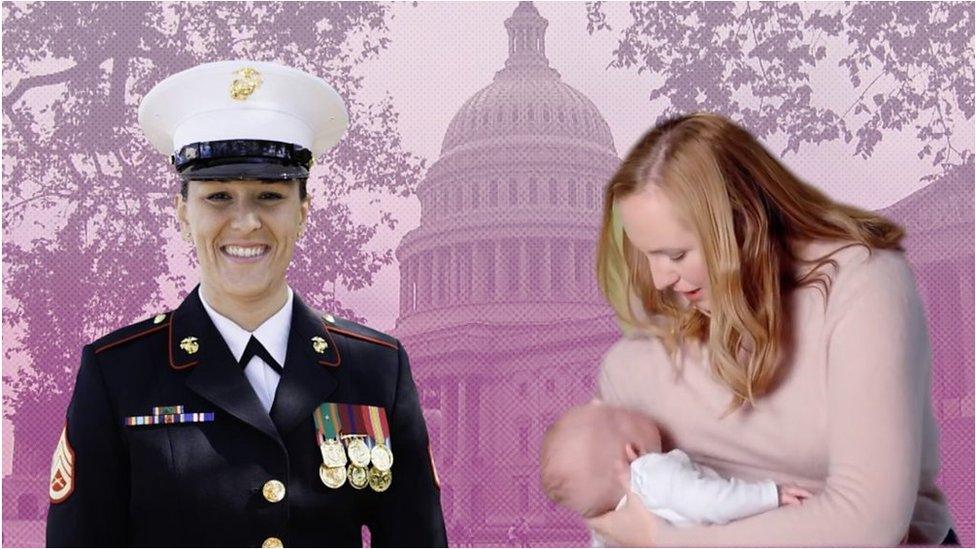US mid-terms: The most surprising candidates
- Published
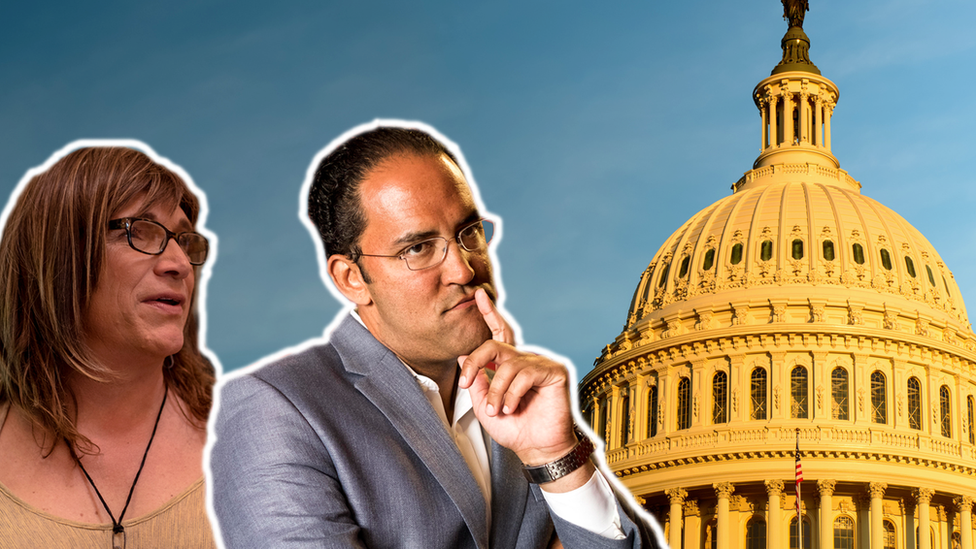
It can be tough to keep up with the deluge of information and analysis that comes with the US mid-term elections.
Despite all the noise, the key question remains whether or not Republicans will be able to keep control of both chambers of Congress.
But with so much to consider and thousands of races taking place, some interesting stories can be lost.
That's why we've picked out some candidates who have had memorable journeys to the ballot box on November 6.
Plus, a politics professor explains how a compelling personal story can make a difference.
The cage-fighting Native-American
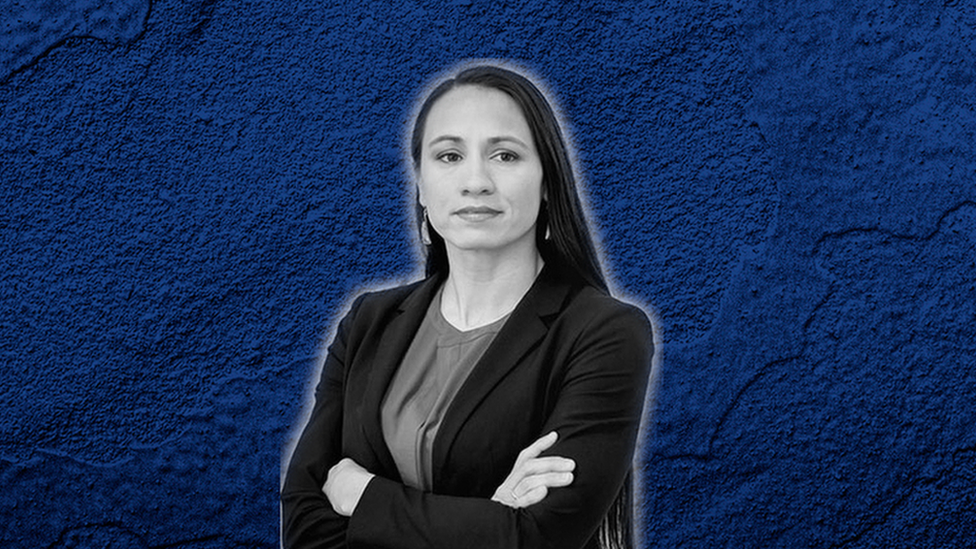
Who?
Democrat Sharice Davids, a gay ex-mixed martial arts fighter, is running in Kansas's third congressional district.
What makes her interesting?
Ms Davids could become the first Native-American woman elected to Congress.
She is a member of the Ho-Chunk Nation, was raised by a single mother who worked as a drill sergeant, and has a law degree from a top US university.
The 38-year-old won her first mixed martial arts fight in November 2013, but began to focus on politics after she was rejected by the Ultimate Fighting Championship.
One quote: "I've been put down, pushed aside, knocked out. I've had to fight my whole life because of who I am and who I love."
The decorated female fighter pilot
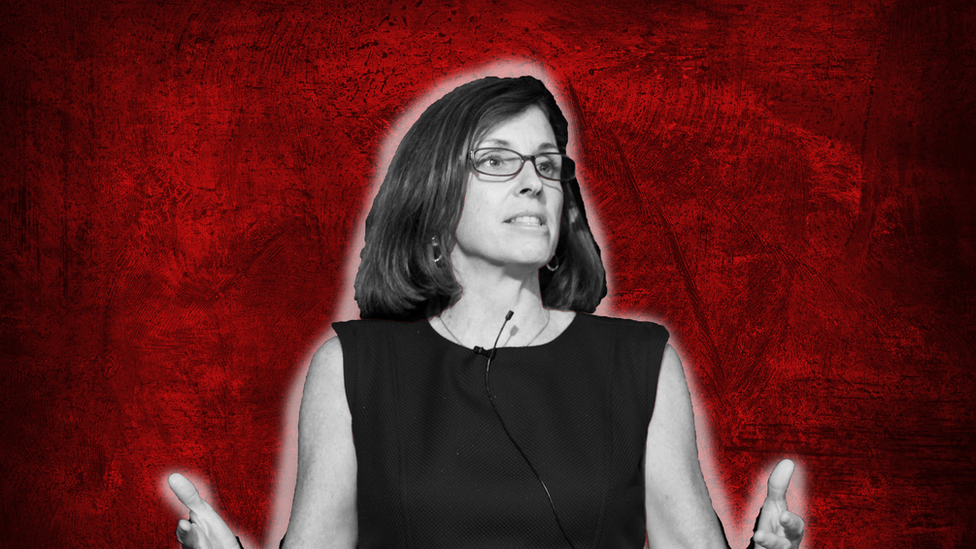
Who?
Martha McSally, a two-term Republican representative from Arizona, is running for Senate in the state.
What makes her interesting?
Ms McSally is the first US female fighter pilot to fly in combat and the first to command a fighter squadron.
She was deployed to Iraq and Afghanistan and earned six medals during her 26-year military career.
If elected, she will become the first woman to represent Arizona in the Senate.
One quote: "I'm a fighter pilot and I talk like one. That's why I told Washington Republicans to grow a pair of ovaries and get the job done."
The ironworker with a viral ad
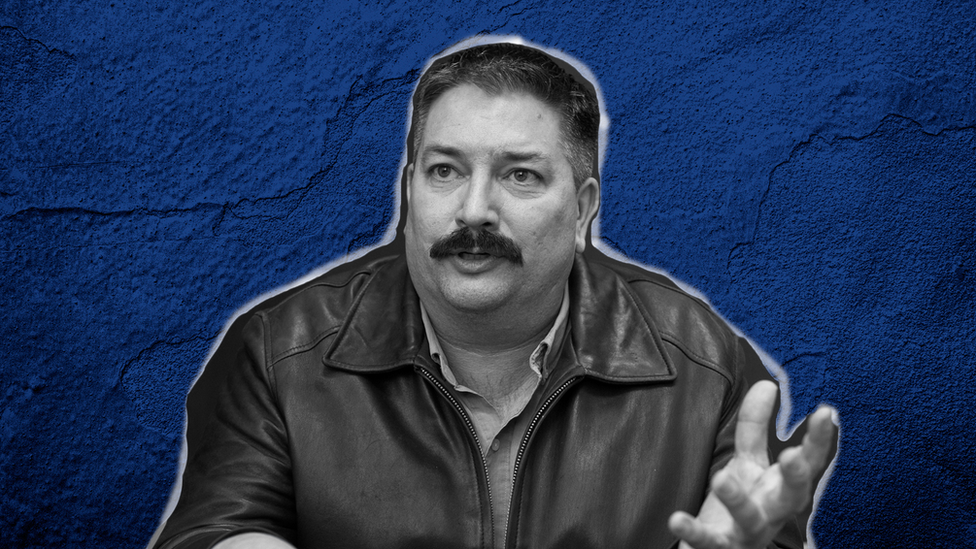
Who?
Randy Bryce, a trade union activist and cancer survivor, is the Democratic candidate for Wisconsin's first district.
What makes him interesting?
Mr Bryce - nicknamed Iron Stache - came to prominence when his biographical campaign video, external went viral earlier this year.
He is an ironworker and former soldier who has emphasised his working-class roots, but he has drawn some notable opposition from close to home.
His brother featured in a Republican attack ad and has said he is voting against him. Awkward.
One quote: "I spent the last 20 years of my life building the district."
The outspoken Gays for Trump founder
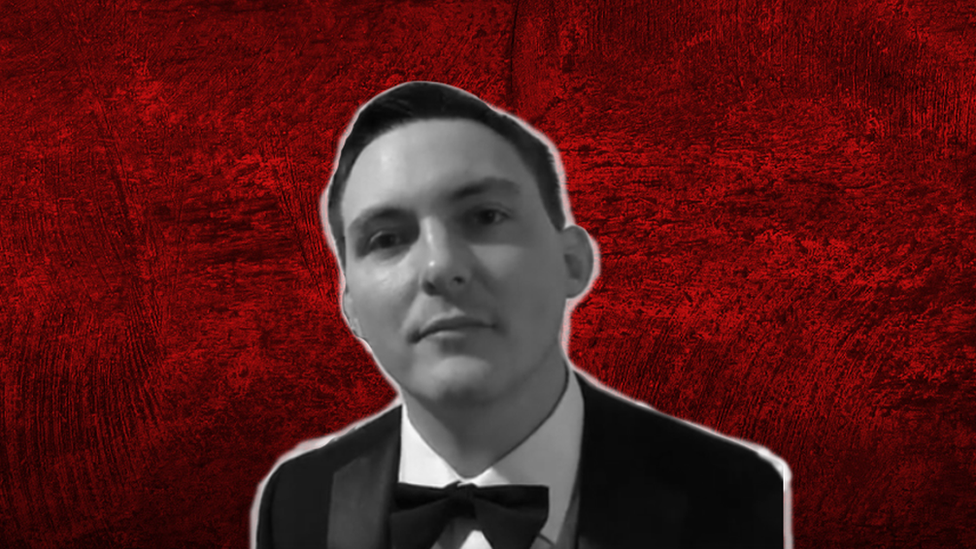
Who?
Peter Boykin, founder of the Gays for Trump group, is running for North Carolina's state legislature.
What makes him interesting?
He is a major outlier, because the vast majority of LGBT candidates running this year are Democrats.
There are no gay Republican nominees for Congress or governor, according to the LGBT Victory Fund, external organisation.
Mr Boykin has been forthright in addressing this issue, telling the New York Times that the Republican Party had "totally embraced" him.
One quote: "The liberal gay community preaches peace, love, and tolerance but they only extend it to people who think like they do."


The transgender former energy executive
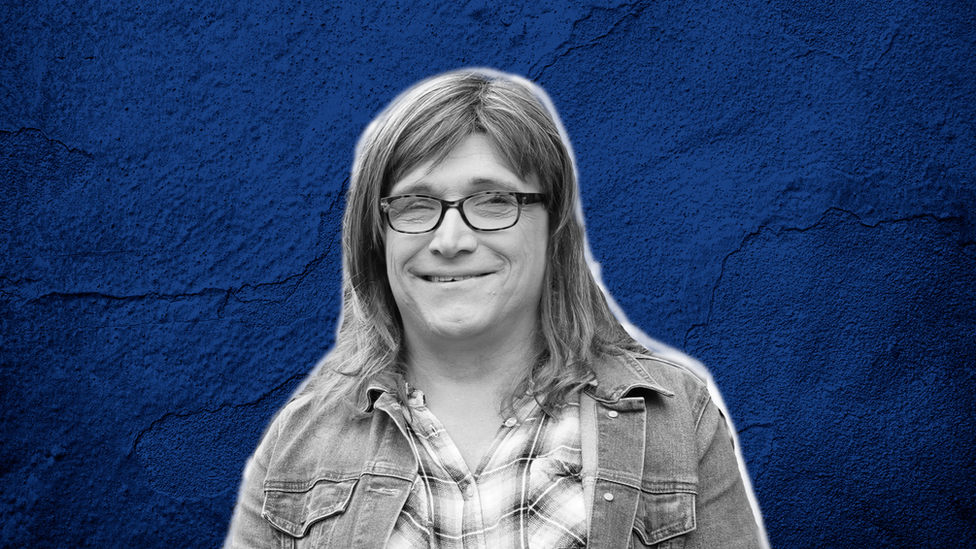
Who?
Christine Hallquist, 62, who defeated three candidates to win the Democratic nomination for governor of Vermont.
What makes her interesting?
She could become the first ever transgender governor of a US state.
Ms Hallquist transitioned in 2015 while working as the head of a state-wide energy company, a job she held for 12 years.
Her nomination comes during an election year that has seen a record number of lesbian, gay and transgender candidates run for political office.
One quote: "I just happen to be a leader who is transgender. Vermonters know that."
The ex-CIA agent and Trump critic
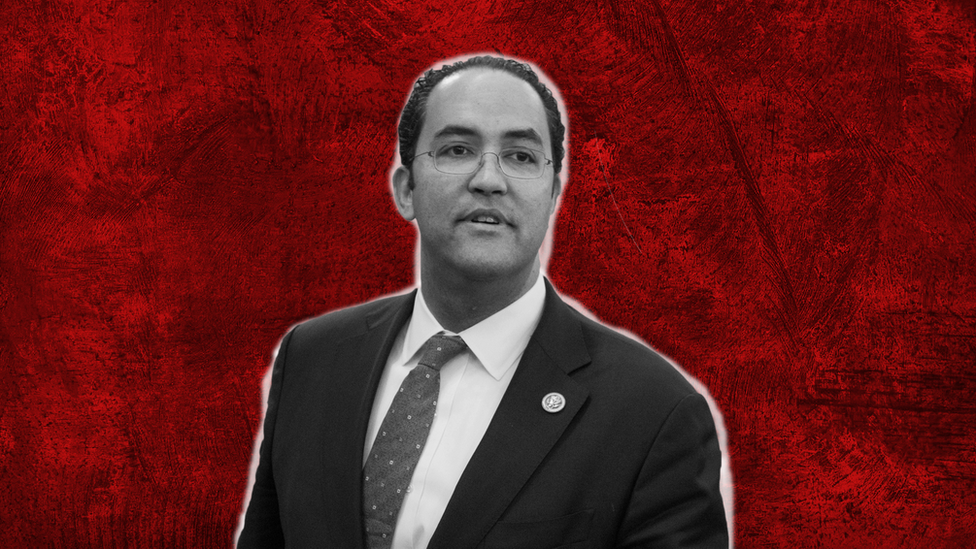
Who?
Will Hurd, a 40-year-old former CIA officer and Republican representative, is contesting a close race for Texas's 23rd district.
What makes him interesting?
He managed covert operations in Afghanistan during a nine-year career with the CIA, and has become a regular on political talk shows.
His district covers an extensive part of the US-Mexico border, and he has been vocal in his opposition to President Trump's immigration policies.
Mr Hurd is a moderate in the party and his seat is high on the list of those the Democrats are hoping to take.
One quote: "I've seen Russian intelligence manipulate many people over my professional career and I never would have thought that the US President would become one."
The newsreader and one-time Miss America
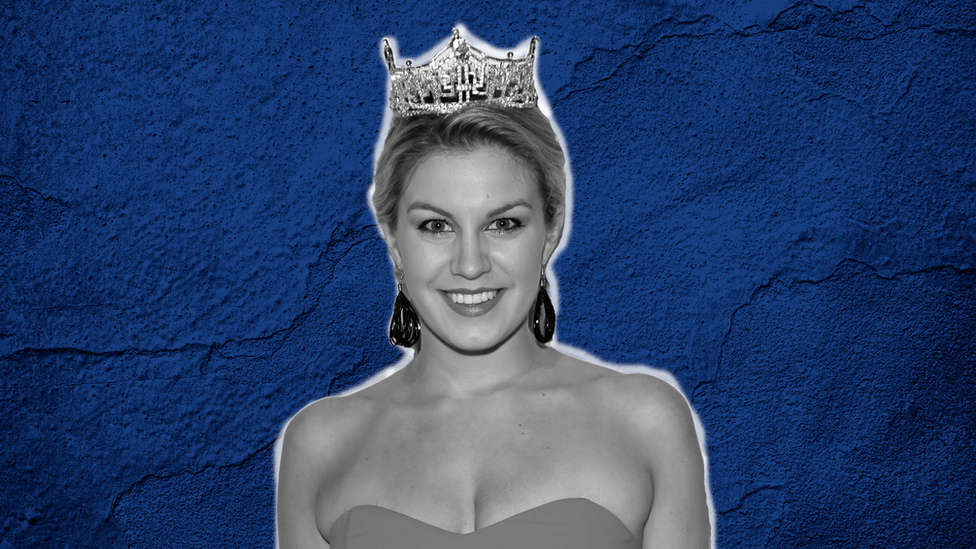
Who?
Democrat Mallory Hagan, 29, who has swapped beauty pageants for the ballot box in Alabama's third district.
What makes her interesting?
She was crowned Miss America in 2013, having previously won the Miss New York and Miss Manhattan titles.
Last year, top figures in the Miss America Organization resigned after leaked emails showed they had mocked a number of contestants including Ms Hagan.
The experience prompted her to give politics a try. "It taught me a lot about the power of my voice," she says on her website.
But she faces a tough test in trying to unseat her Republican opponent, Mike Rogers, who has held the district for more than 15 years.
One quote: "After looking at the numbers of women throwing their hats in the ring, I decided to do it."
The Trump-supporting underwear model
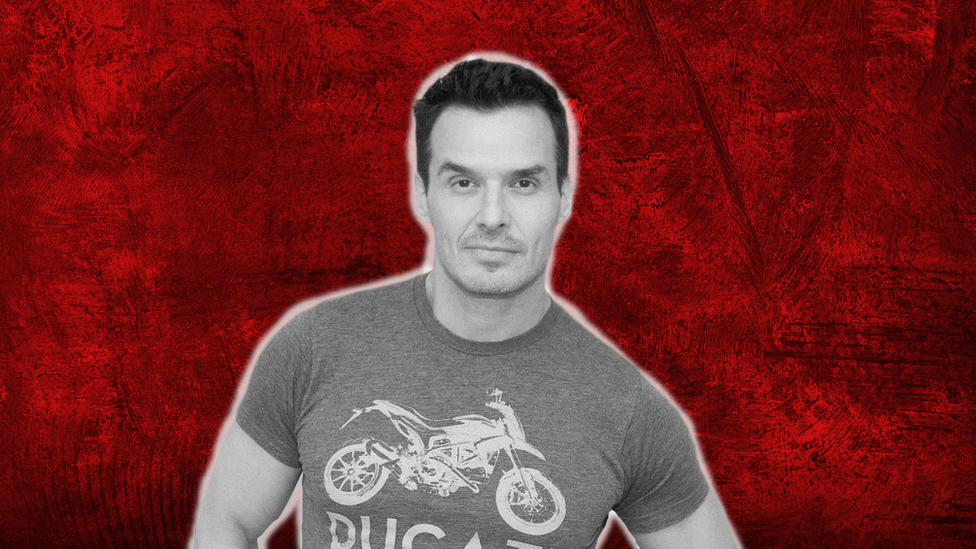
Who?
Antonio Sabato Jr, a TV actor and former Calvin Klein model, is the Republican candidate in California's 26th district.
What makes him interesting?
Mr Sabato has been plastered on a 90ft [27m] billboard in Times Square and has shown off his ballroom skills on TV's Dancing with the Stars.
But in recent years it's his political views that have been in the spotlight.
He says he was blacklisted by Hollywood directors for his early support of Mr Trump's presidential run.
Mr Sabato has also repeatedly claimed - without evidence - that former President Barack Obama is Muslim.
One quote: [On President Obama] "If he's not a Muslim, we should call him President Barry."

What does this all mean?
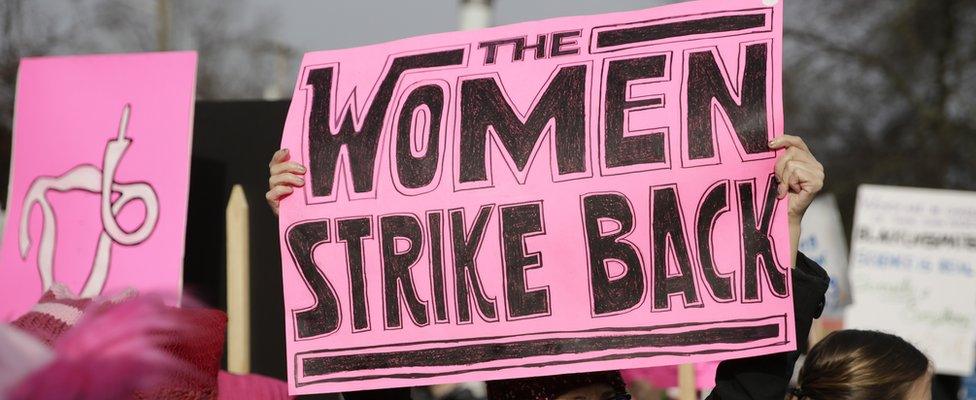
This year's pool of candidates is a diverse one, with more women and LGBT people running than ever before.
But will it make a difference? Yes, says Jennifer Lawless, a politics professor at the University of Virginia who specialises in campaigns and elections.
"A lot of these more diverse candidates can generate levels of enthusiasm among voters that have traditionally not been part of the electoral environment," she says.
Prof Lawless also points out that most of the new, diverse, candidates are Democrats. Why is this?
"A lot are running based on their concerns about the Trump administration," she says. "Many have personal experience where they feel like they have been targeted themselves."
There are also a number of candidates who have compelling personal stories to tell and Prof Lawless says this can be helpful - to an extent.
"In a lot of cases these personal stories are a way for candidates to talk about themselves in a way that is genuinely authentic," she says.
"But there's not much evidence to suggest that voters specifically look at individual life stories," she adds.
"The most important thing is the ability to convey that you have the background and the experience to be an effective representative of the people."
- Published16 October 2018
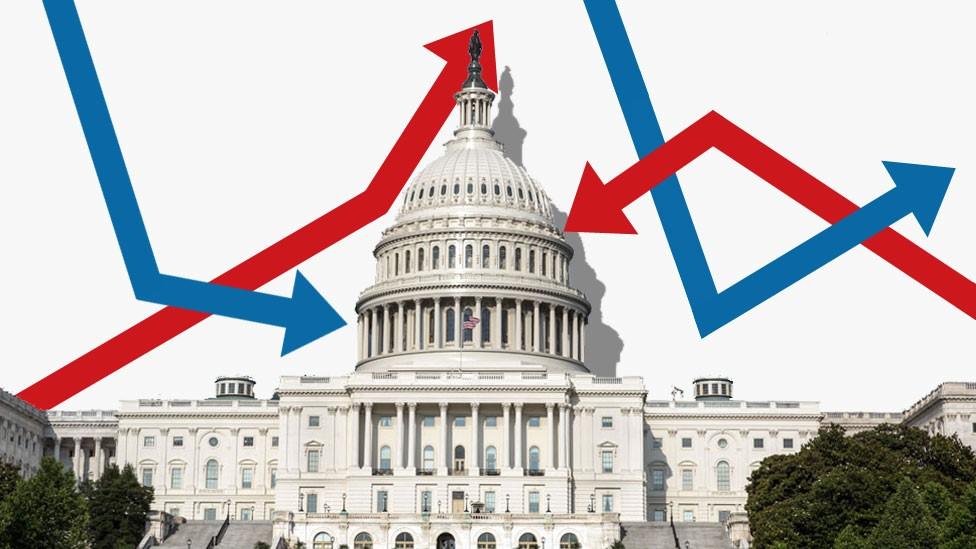
- Published4 November 2018
- Published6 November 2018
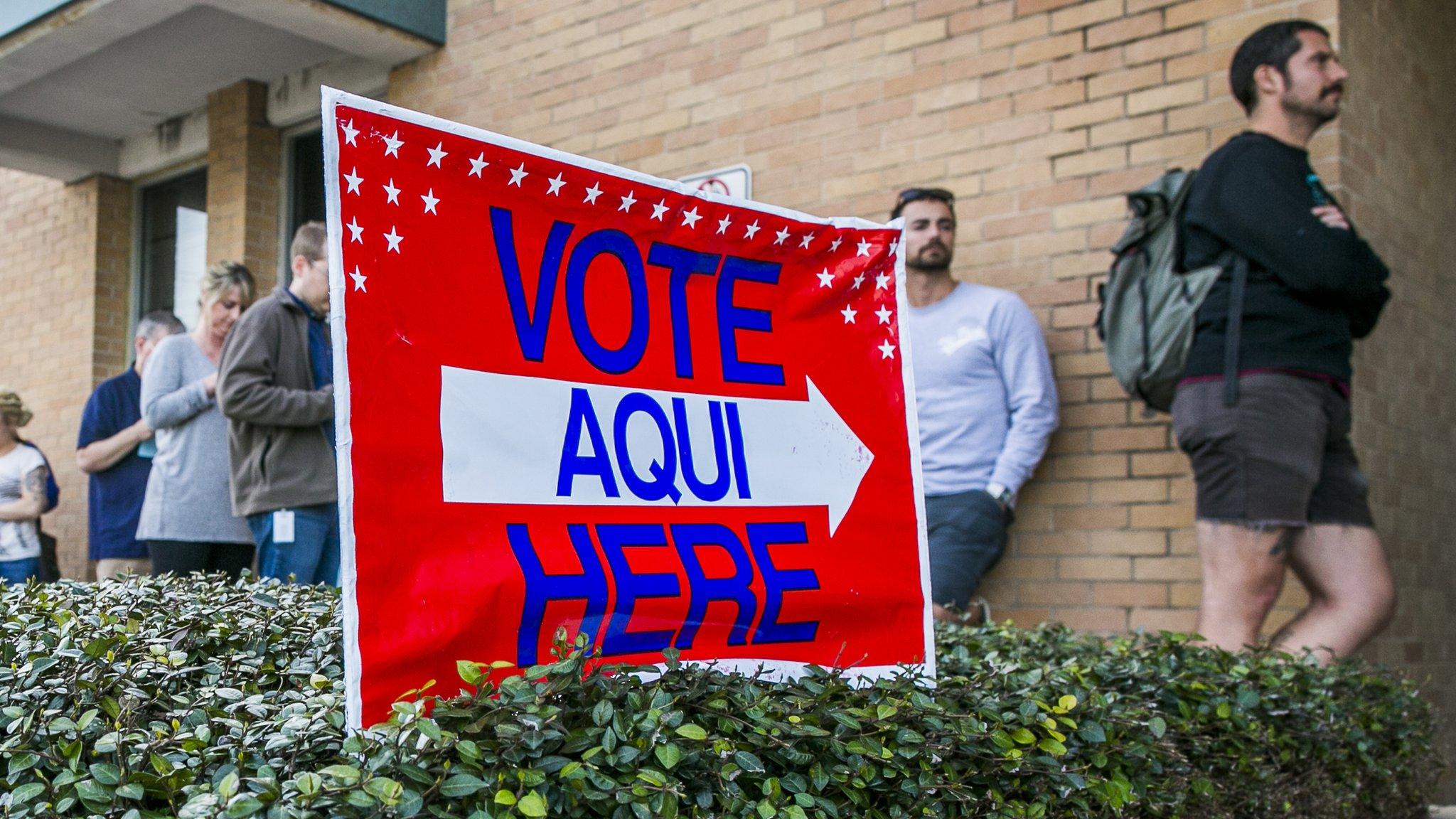
- Published8 June 2018
